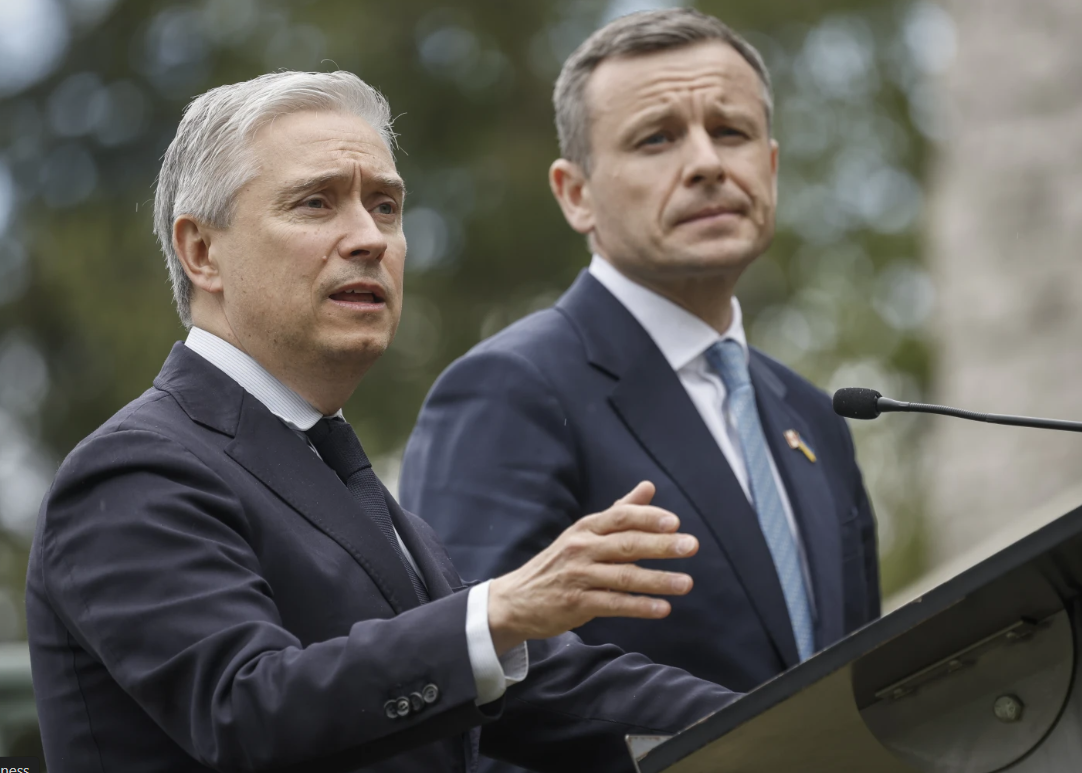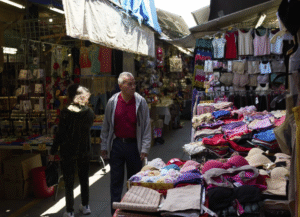Top financial officials from the world’s wealthiest nations are meeting this week at a resort in the Canadian Rockies, where recent U.S. trade policies under President Donald Trump are expected to stir heated discussions. The annual gathering of the Group of Seven (G7) finance ministers—typically marked by unity and cooperative action—may instead highlight growing rifts among member countries.
In previous years, the G7 finance summits have led to unified efforts against global inflation and responses to crises such as the COVID-19 pandemic. This year, however, Trump’s sweeping tariffs are threatening economic growth across several G7 nations, including Canada, which the president recently suggested could become the 51st U.S. state.
“This could be a difficult and confrontational meeting,” said Eswar Prasad, an economist at Cornell University and former official at the International Monetary Fund. “The relationships among G7 countries are under serious strain.”
While the U.S. has struck a preliminary trade deal with the United Kingdom and is in ongoing talks with Japan and the European Union, other G7 countries remain affected by steep tariffs. Canada continues to face a 25% duty on several exports, including cars. Meanwhile, France, Germany, and Italy—all EU members—are subject to a flat 10% tariff on their exports to the U.S.
This week’s summit marks the first formal G7 appearance for U.S. Treasury Secretary Scott Bessent, who previously joined an informal gathering during IMF and World Bank meetings in Washington, D.C. Federal Reserve Chair Jerome Powell will also be present, along with central bank leaders from other G7 countries.
Canadian Finance Minister François-Philippe Champagne emphasized the importance of fair and rules-based trade. “The message from colleagues is pretty clear: a free and fair multilateral trading system benefits everyone,” he said on Tuesday.
Many attendees are expected to hold private discussions with Bessent, though no major agreements are anticipated before the June meeting of G7 heads of state in Kananaskis, Canada. Still, Bessent may help ease tensions, according to Prasad, as he is seen as a more moderate voice within the Trump administration’s economic team.
Areas of consensus may include the Trump administration’s focus on reducing what it describes as “global imbalances” in trade—referring to persistent U.S. trade deficits and the large surpluses of countries like China. Bessent recently argued that past trade policies have weakened U.S. manufacturing and harmed national security by disrupting key supply chains.
Another topic likely to surface—at least in side conversations—is the status of the U.S. dollar. The dollar fell in value last month following Trump’s tariff announcement, while Treasury bond yields climbed, suggesting investors may be losing confidence in the U.S. economy.
“Behind the scenes, they’ll be talking nonstop about tariffs and the dollar,” said Steven Kamin, senior fellow at the American Enterprise Institute and former Federal Reserve economist.
Last year, G7 finance ministers in Stresa, Italy, issued a joint statement affirming their commitment to a fair and open trading system. Whether a similar agreement can be reached this year remains uncertain.
The group will also likely debate additional sanctions on Russia. On Tuesday, the European Union and the U.K. imposed new restrictions on Russian oil exports, targeting a network of unregistered tankers believed to be bypassing previous sanctions. Lowering the current $60-per-barrel price cap on Russian oil could be discussed further during Wednesday’s meetings.
Although the Trump administration has publicly supported stronger sanctions, it hasn’t formally backed the latest measures. Trump recently spoke with both Russian President Vladimir Putin and Ukrainian President Volodymyr Zelenskyy, claiming that ceasefire talks are imminent, though details remain unclear.
Ukrainian Finance Minister Sergii Marchenko is attending the G7 summit, even though Ukraine is not a member. Daleep Singh, chief global economist at PGIM Fixed Income and a former Biden administration official, said that how the G7 responds to Russian oil revenues will reveal much about the group’s remaining unity.
“If there’s any hope for a lasting peace, oil sanctions are where the pressure needs to be applied,” Singh said.














